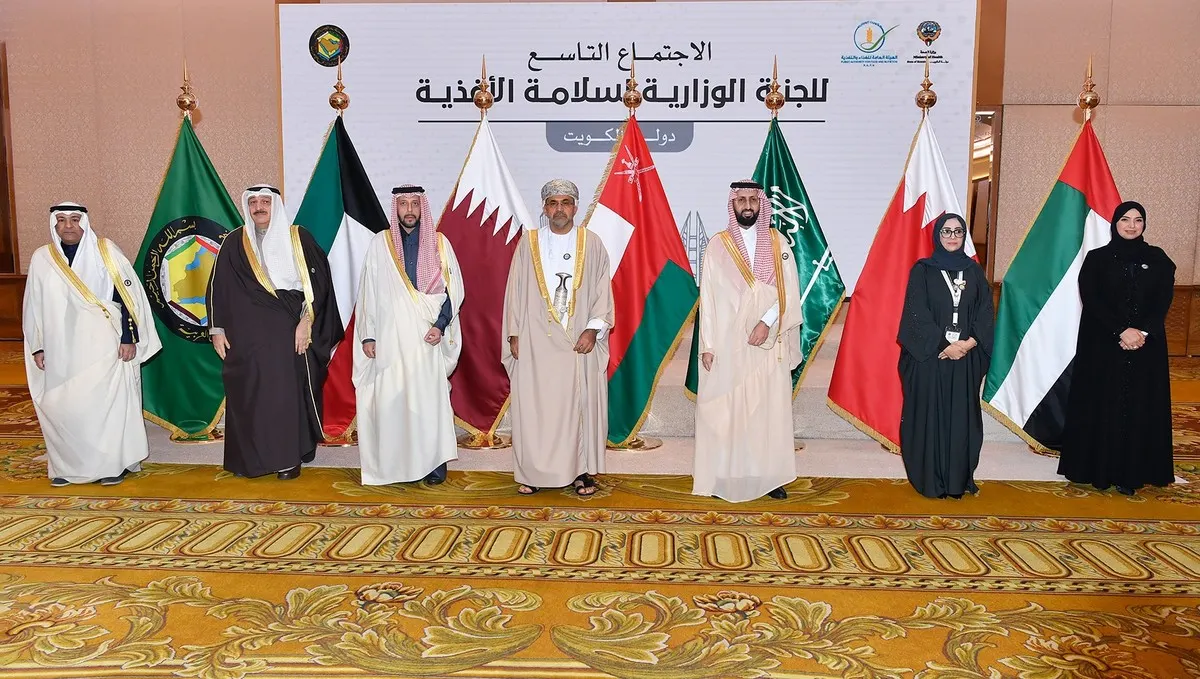06/02/2025
06/02/2025

KUWAIT CITY, Feb 6: Kuwait hosted the ninth meeting of the Gulf Ministerial Committee for Food Safety on Thursday, attended by the Secretary-General of the Gulf Cooperation Council (GCC), ministers, and representatives from GCC countries. The meeting aimed to discuss key food safety issues and enhance cooperation amid global challenges affecting the food system.
Minister of Health Dr. Ahmad Al-Awadhi, who chaired the meeting, emphasized that food safety is not only a regulatory issue but also a health responsibility and strategy. He noted that safe food is essential for community health and sustainable development. Al-Awadhi stressed the accelerating health and food challenges worldwide, which necessitate stronger collaboration among GCC countries to improve food legislation, control systems, and community awareness to ensure the provision of safe food.
The minister further explained that the meeting provided an opportunity to unify visions and create decisions and recommendations supporting the development of a sustainable Gulf food system. This system would be capable of adapting to global changes and effectively addressing emerging challenges. He highlighted the importance of continuous cooperation between member states to enhance food safety standards across the Gulf region.
Al-Awadhi expressed his gratitude to the participating ministers, delegations, and the GCC General Secretariat for their contributions to the success of the meeting, reflecting the GCC’s commitment to improving cooperation and integration in health and food safety. He also thanked the State of Qatar for its exceptional leadership in the previous session, which led to meaningful advancements in food safety within the region.
In his speech, the Secretary-General of the Gulf Cooperation Council, Jassim Al-Budaiwi, stressed that the health of Gulf citizens and residents is a top priority. He noted that food safety is a strategic investment in the health of GCC populations and emphasized that the directives of GCC leaders aim to advance the region through continued cooperation and integration. Al-Budaiwi praised the GCC’s achievements in food safety, which have gained the region international recognition.
The meeting’s agenda covered crucial topics, including the unified food system law for GCC countries, the Gulf guide for controlling imported food, and the Gulf Center for Food Risk Assessment. Al-Budaiwi stressed that decisions made during the meeting would further enhance Gulf cooperation in food safety and drive progress.
Dr. Reem Al-Fulaij, Chairperson of the Board of Directors and Director General of the Public Authority for Food and Nutrition in Kuwait, spoke to the press after the meeting. She highlighted that the meeting was an important milestone in strengthening GCC cooperation and advancing food safety control systems in line with global best practices. The discussion focused on the draft unified food law for the GCC, aimed at harmonizing food safety legislation across member states, and the Gulf Guide for Controlling Imported Foods.
Al-Fulaij also noted that the meeting covered the evaluation of food control systems among GCC countries, facilitating trade while ensuring consumer protection. She expressed her gratitude for the success of the meeting and Kuwait’s ongoing commitment to working with its GCC counterparts to achieve the best outcomes for the region.
At the conclusion of the meeting, participants reaffirmed the importance of continued cooperation in food safety, emphasizing the need for integrated control systems to achieve high health and food safety standards. The collaboration aims to enhance food security, protect consumers, and foster the exchange of expertise among GCC countries in developing effective food safety systems.


